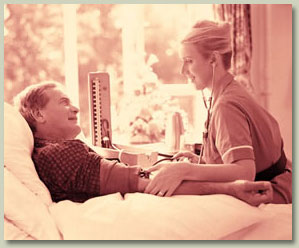The Internet has now become the most used tool for getting information. Those looking for nursing jobs use it to look for ads, facilities and hospitals looking for new nurses. Students who want to go to nursing schools, take up nursing or nursing bridge programs like paramedic to RN programs, use the Internet to browse for the best schools suited to them. Working nurses use the Internet to search for information, as well.
Also, patients and consumers look for health information online, rather than in libraries or certain offices. Research also shows that almost 60 percent of American adults use social media that are related to the health field. What makes the Internet the best search tool is its convenience and efficiency. This is very important for patients who do not have the opportunity to go out much or those who are confined in hospitals or hospices. The Internet has spawned social networking sites that are now part of people’s lives. By simply logging in to your account, you can see pictures, videos or read messages from loved ones and friends. This becomes an instant stress-reliever for patients who really need all the support they can get from people they love.
It is also common for patients these days to search about their diagnosis. By knowing more about their illnesses, they become more aware of the issues relevant to what they are going through. That is why medical websites, such as pharmaceutical sites, nursing sites and certain online support medical forums are now increasing in popularity.
We are also aware that nurses have a very hectic schedule. Because of this, many of them are stressed out. To relieve stress many join social networking sites to connect with friends. A lot of nurses are also into nursing forums. Nursing forums allow nurses to interact with fellow nurses. This is a venue where they can talk about how their days went and the life lesson experiences they have.
It is impossible to imagine a world without Internet. Not only does it make lives easier, it also brings people closer.
